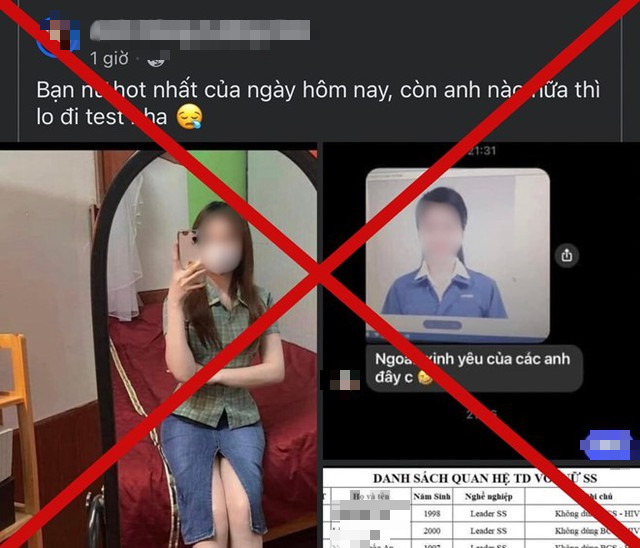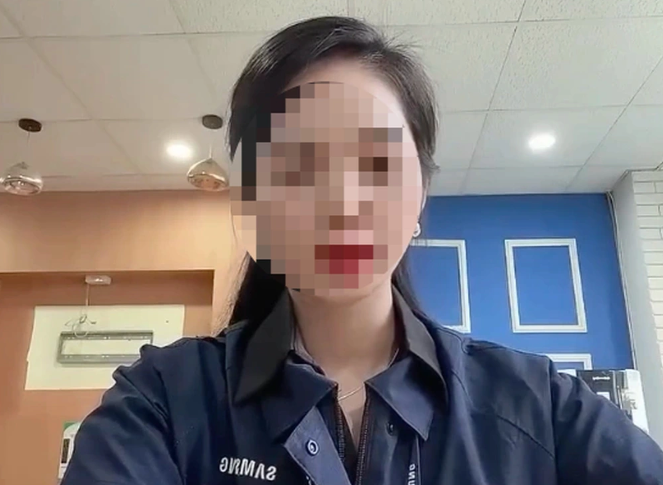The online community probably hasn’t forgotten the information about “The girl S.S transmitting HIV to many men at the factory where she works.” Accordingly, the origin of this rumor came from videos and images circulated on social media applications TikTok and Facebook, and within a weekend afternoon, the incident spread at lightning speed, causing a stir in public opinion.
On July 26, social media circulated many posts and clips containing sensitive content. These posts all mentioned a female character who is an employee of S.S Thai Nguyen.
In addition, the post also included an image of a list of 16 people supposedly having had relations with the girl and contracted HIV.
Later that day, a clip of the girl rumored to be involved in the incident appeared on Facebook. This girl spoke out, stating that she was being defamed, and that false information was being spread about her.
Here, the unverified rumor has already had a significant impact on the person involved. Specifically, the name and images of the girl alleged to be the main character spread widely on social media. Accompanying this was a list of people infected because they “did not use condoms,” directly naming individuals along with their birth dates and job positions.

At the time the fake news exploded, the source of the information had not been identified, but those spreading it were enthusiastically trying to capitalize on the event, pulling views, poisoning the social media space, and tarnishing the reputation of the unfortunate girl. Such toxic information spreads like oil stains, tarnishing the image of a girl and damaging the reputation of a large foreign enterprise in the locality, especially concerning HIV-AIDS. Fake news not only causes direct harm to the victim, leading to serious defamation but also affects their family members, friends, and partners.

Ultimately, the individual who spread the fake news was documented and fined 7.5 million VND – many opinions suggested that there should be a stricter form of punishment to deter or intimidate the forces that “poison” the online space.
Thus, the online community needs to be more conscious about verifying information before trusting and spreading it. Sharing inaccurate information can cause significant harm to others, especially when it relates to sensitive issues. Only in this way can we somewhat reduce the amount of junk information in the online space.